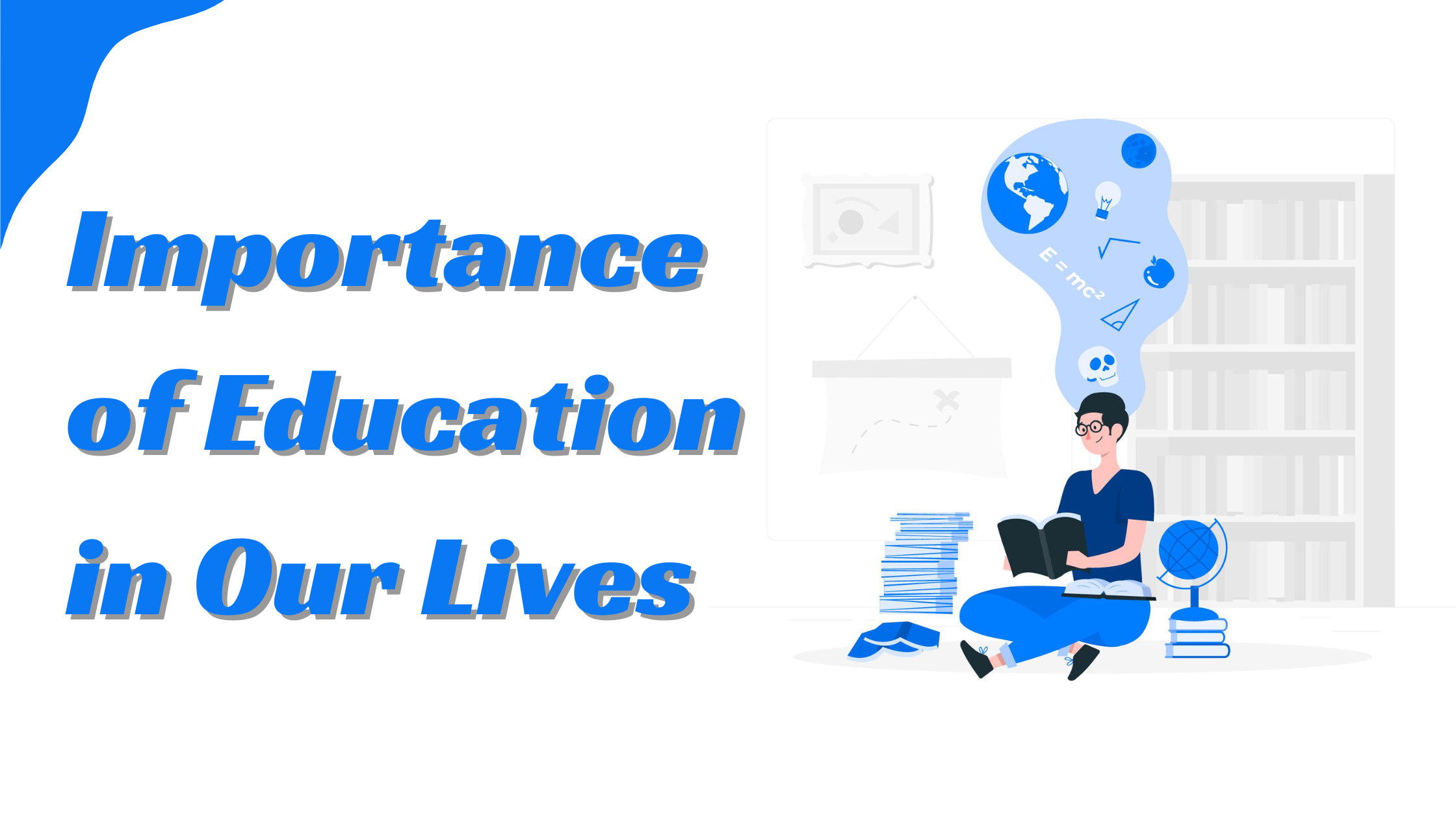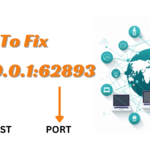The Importance of Education in Our Lives
Education is a fundamental aspect of human development and societal progress. It is the cornerstone for building a better future, fostering personal growth, and promoting economic and social stability. In this article, we will explore the multifaceted importance of education, examining its impact on individual lives, communities, and the broader world.
Personal Development and Growth
- Knowledge Acquisition and Cognitive Development Education facilitates the acquisition of knowledge, skills, and critical thinking abilities. It helps individuals understand the world around them, question existing beliefs, and develop the capacity for independent thought. From learning to read and write to mastering complex scientific theories, education broadens our intellectual horizons and equips us with the tools necessary for informed decision-making.
- Self-Discipline and Time Management The structured environment of educational institutions teaches students essential life skills such as self-discipline, time management, and goal setting. These skills are crucial for personal success and applicable in various life aspects, including career advancement, personal relationships, and community involvement.
- Emotional and Social Development Education plays a significant role in emotional and social development. It provides a platform for individuals to interact with peers, understand diverse perspectives, and develop empathy and interpersonal skills. Schools and universities often serve as microcosms of society, where students learn to navigate social complexities, build friendships, and work collaboratively.
Economic Empowerment and Career Opportunities
- Employment Prospects and Financial Stability Education is a key determinant of employability and earning potential. Higher levels of education often correlate with better job opportunities and higher salaries. Pursuing an undergraduate degree is crucial in securing gainful employment and achieving financial stability. In today’s knowledge-based economy, employers seek individuals with specialized skills and qualifications, making education a vital factor in career advancement.
- Entrepreneurship and Innovation Education fosters entrepreneurship and innovation by providing individuals with the knowledge and skills to start and manage businesses. It encourages creative thinking, problem-solving, and the ability to adapt to changing market conditions. Educated entrepreneurs are more likely to create successful enterprises, contributing to economic growth and job creation.
- Economic Growth and National Development At a macroeconomic level, education drives economic growth and national development. Countries with higher levels of educational attainment tend to have more robust economies, higher productivity, and greater technological advancement. An educated workforce is essential for attracting investment, fostering innovation, and maintaining a competitive edge in the global market.
Social Equity and Justice
- Reducing Poverty and Inequality Education is a powerful tool for reducing poverty and inequality. Education helps break the cycle of poverty and empowers marginalized communities by providing equal access to learning opportunities. It enables individuals to improve their socio-economic status and provides a pathway to upward mobility.
- Promoting Gender Equality Education plays a crucial role in promoting gender equality. Access to quality education empowers women and girls, enabling them to pursue careers, participate in decision-making processes, and achieve economic independence. Educated women are more likely to advocate for their rights, contribute to community development, and raise healthier, better-educated children.
- Fostering Social Cohesion and Democracy Education promotes social cohesion and democratic values by fostering an informed and engaged citizenry. It teaches individuals about their rights and responsibilities, encourages civic participation, and promotes respect for diversity and tolerance. An educated population is better equipped to contribute to the democratic process and hold governments accountable.
Health and Well-being
- Improved Health Outcomes Education is closely linked to health outcomes. Educated individuals are more likely to adopt healthy behaviors, seek medical care, and make informed decisions about their health. They are also better equipped to understand and prevent diseases, leading to longer, healthier lives.
- Mental Health and Well-being Education contributes to mental health and well-being by providing individuals with purpose, achievement, and social support. Educational institutions often offer resources and programs that promote mental health awareness and support students facing challenges.
- Public Health and Safety An educated population can better understand and respond to public health issues like pandemics and environmental hazards. Education promotes awareness of safety practices, health guidelines, and the importance of preventive measures, contributing to overall public health and safety.
Environmental Sustainability
- Raising Awareness and Knowledge Education raises awareness about environmental issues and provides the knowledge needed to address them. It teaches individuals about the impact of human activities on the environment and the importance of sustainable practices.
- Promoting Sustainable Development Education supports sustainable development by encouraging responsible consumption, conservation of resources, and the adoption of eco-friendly technologies. It equips individuals with the skills to innovate and implement solutions that mitigate environmental degradation.
- Empowering Future Leaders Education empowers future leaders to advocate for and implement policies that promote environmental sustainability. By fostering a sense of responsibility towards the planet, education ensures that future generations are prepared to tackle global challenges such as climate change and biodiversity loss.
Cultural Preservation and Global Understanding
- Preserving Cultural Heritage Education is vital in preserving and promoting cultural heritage. It teaches individuals about their cultural roots, traditions, and history, fostering a sense of identity and pride. Educational institutions often serve as custodians of cultural knowledge, ensuring it is passed down to future generations.
- Promoting Global Citizenship In an increasingly interconnected world, education promotes global citizenship by teaching individuals about different cultures, languages, and perspectives. It encourages mutual respect, understanding, and cooperation, essential for addressing global challenges and promoting peace.
- Encouraging Cultural Exchange Education facilitates cultural exchange by providing opportunities for individuals to study abroad, participate in international programs, and engage with diverse communities. These experiences broaden horizons, foster intercultural dialogue, and contribute to a more inclusive and harmonious world.
Conclusion
The importance of education in our lives cannot be overstated. It is a powerful tool for personal development, economic empowerment, social equity, health and well-being, environmental sustainability, and cultural preservation. By providing individuals with the knowledge, skills, and values needed to navigate and contribute to society, education serves as the foundation for a better future. As we face global challenges, investing in education remains crucial for building a more just, prosperous, and sustainable world.

















